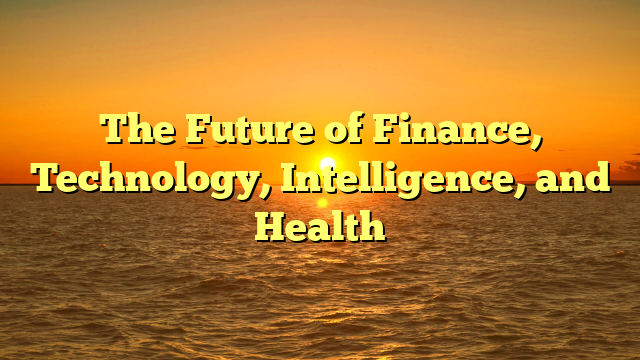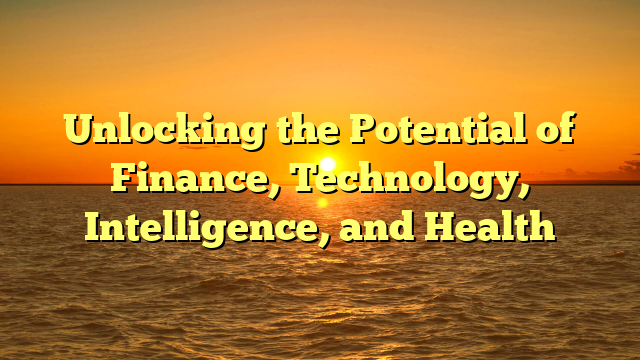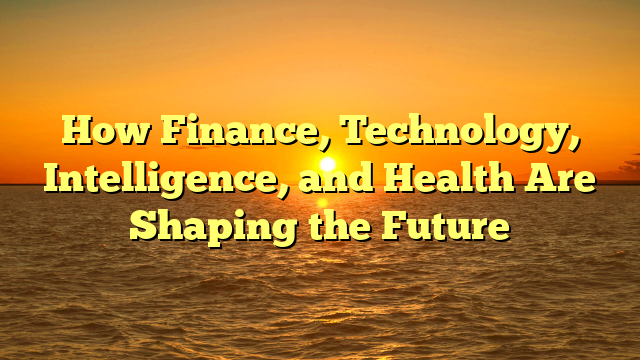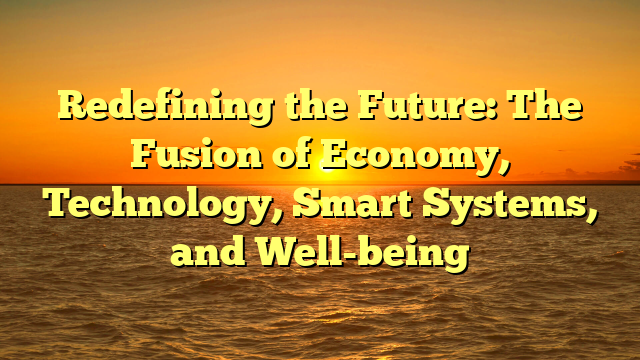
Introduction:
In the ever-evolving landscape of the 21st century, four critical pillars are reshaping the way we live and interact with the world: finance, technological advancements, artificial intelligence, and healthcare. These elements, though seemingly distinct, are increasingly interconnected, driving innovations and changes across industries and societies. This article delves into how these four domains intersect, how they influence one another, and how they are shaping the future of our global society.
—
The Transformation of Finance
Finance have undergone a remarkable transformation in the digital age. Traditional banking and financial systems, which once relied on physical branches and in-person transactions, have shifted towards online banking systems and digital currencies. These changes are driven by technological advancements, making financial services more accessible, efficient, and secure.
The advent of distributed ledger technology has been a game-changer for the finance industry. Blockchain allows for decentralized and transparent transactions, reducing the need for intermediaries like banks and financial institutions. This not only lowers transaction costs but also enhances security, ensuring that financial data is tamper-proof and verifiable.
Moreover, the rise of financial technology companies has disrupted traditional financial services. These innovative startups are leveraging technology to provide services ranging from mobile banking to peer-to-peer lending. With machine learning algorithms powering these platforms, they are able to offer personalized financial advice, automate investment strategies, and even predict market trends.
The integration of artificial intelligence into finance also extends to risk management. Financial institutions are using machine learning to analyze vast amounts of data, identify patterns, and predict market behavior, thus enabling them to make better-informed decisions. This has led to more effective investment strategies, reduced risks, and improved customer satisfaction.
—
The Impact of Technology on Society
Technology has become the backbone of modern society, influencing almost every facet of our daily lives. From the smartphones in our pockets to the cloud computing that power businesses, technology has revolutionized how we work, communicate, and live.
One of the most significant technological advancements of the 21st century has been the development of the internet of things (IoT). With IoT, everyday objects like refrigerators, thermostats, and even cars are now connected to the internet, allowing them to communicate with each other and be controlled remotely. This has led to smarter homes, improved efficiency, and increased convenience for consumers.
Additionally, the rapid growth of AI and machine learning is driving new capabilities across industries. AI is being used to automate tasks that were once performed by humans, such as customer service, data entry, and even driving. AI-powered systems are also enabling businesses to streamline operations, reduce costs, and enhance customer experiences. From self-driving cars to predictive analytics, AI is reshaping the future of industries such as transportation, healthcare, and entertainment.
In healthcare, for example, machine learning is being used to analyze medical data, such as patient records and diagnostic images, to help doctors make more accurate diagnoses and treatment decisions. Additionally, AI algorithms are being deployed to predict disease outbreaks, assist in drug discovery, and personalize treatments for patients based on their unique genetic makeup.
—
How AI is Shaping the Future of Human Intelligence
Intelligence, traditionally defined by human cognitive abilities, is experiencing a paradigm shift with the advent of artificial intelligence. AI is designed to replicate human cognitive functions, such as learning, problem-solving, and decision-making, using algorithms and data. The evolution of AI has led to breakthroughs in various domains, from natural language processing (NLP) to computer vision and robotics.
The integration of AI into various industries is redefining what it means to be “intelligent.” For instance, AI is powering intelligent assistants like Alexa and Google Assistant, which can understand and respond to human speech. These systems rely on machine learning to improve their accuracy over time, making them more effective at answering questions, controlling smart devices, and assisting with daily tasks.
Beyond consumer-facing applications, AI is also enhancing scientific research. Researchers are using AI to analyze complex data sets, run simulations, and discover new insights in fields ranging from quantum physics to genomics. AI is also playing a critical role in enhancing human intelligence through augmented decision-making. For example, AI systems are being used in education to tailor learning experiences to individual students’ needs, allowing for more personalized and effective education.
Despite its many benefits, AI also raises ethical concerns, such as the potential for job displacement, privacy issues, and the ethical implications of AI decision-making. As AI continues to evolve, it is crucial to ensure that its development is guided by ethical principles that prioritize human well-being and equity.
—
How Technology is Transforming Healthcare
Health and wellness are at the forefront of many technological innovations today. Slot gacor of medicine and technology is opening up new opportunities for improving quality of life and extending lifespan. Telemedicine, personalized treatments, and wearable health devices are just a few examples of how technology is revolutionizing healthcare.
Telemedicine, for instance, has made healthcare more accessible to people in remote areas or those with mobility challenges. Through virtual consultations, patients can consult with doctors without having to leave their homes, which not only saves time but also reduces healthcare costs. In addition, telemedicine has become particularly valuable in managing chronic diseases, as patients can receive regular check-ins and monitoring without the need for frequent hospital visits.
Wearable devices, such as smartwatches and fitness trackers, are also playing a crucial role in health management. These devices monitor vital signs, such as heart rate, blood pressure, and sleep patterns, and provide users with real-time data about their health. Some devices can even alert users to potential health issues, such as irregular heartbeats, and prompt them to seek medical attention. This shift toward personalized healthcare is empowering individuals to take control of their health and make informed decisions about their well-being.
Moreover, the use of artificial intelligence in healthcare is helping doctors make more accurate diagnoses and create customized treatment plans. By analyzing large datasets, AI systems can identify patterns that may not be visible to the human eye, enabling earlier detection of diseases and more effective treatments.
—
Conclusion:
The convergence of financial systems, technological innovations, intelligence, and health is shaping the future of our world. These sectors are becoming increasingly interconnected, driving innovation and creating new opportunities for individuals and businesses alike. As we continue to witness the transformative power of these fields, it is clear that the future will be driven by advancements in these areas, leading to a more efficient, healthier, and intelligent world.
The key to maximizing the potential of these technologies will be ensuring that they are developed and implemented in a responsible and ethical manner. By doing so, we can create a future where finance, technology, intelligence, and health work together to enhance the lives of individuals and societies around the globe.




